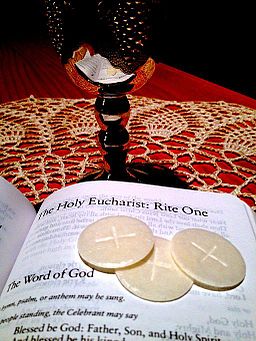I like to ponder things and just wanted to share. I once read a Jewish Rabbi who said that the bible was happening now, for each of us, and all of the stories were at once part of our own lives.
What about this as a speculative interpretation:
For every moment there is a temptation, for every sin there is a fall, for every fall there is a victim, for every victim there is a cross and a Christ.
So in terms of the "deadly sins" for greed there may be a poverty stricken Christ, and for pride there may be a rejected Christ etc.
I am still trying to make sense of the Eucharistic service, but maybe its like a cosmogram of the fallen world and the victims of sin within it??? And aids meditation, causes distress, and therefore reforms the heart?
Cosmogram - Wikipedia

What about this as a speculative interpretation:
For every moment there is a temptation, for every sin there is a fall, for every fall there is a victim, for every victim there is a cross and a Christ.
So in terms of the "deadly sins" for greed there may be a poverty stricken Christ, and for pride there may be a rejected Christ etc.
I am still trying to make sense of the Eucharistic service, but maybe its like a cosmogram of the fallen world and the victims of sin within it??? And aids meditation, causes distress, and therefore reforms the heart?
Cosmogram - Wikipedia
Last edited:
